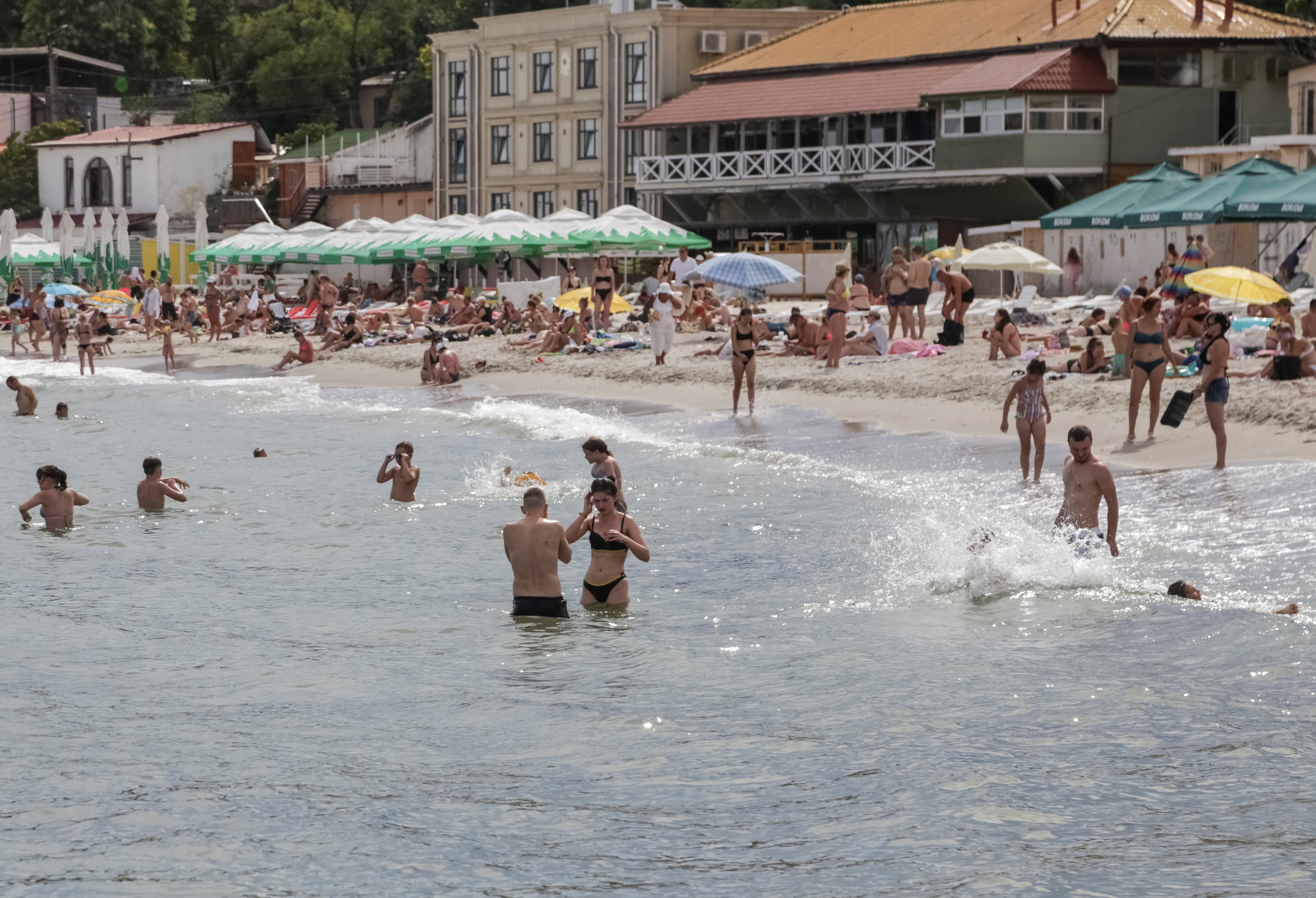Warning as unexploded Russian mines wash up on Europe’s tourist beaches
As recently as Monday, a Russian mine exploded in a Romanian Black Sea resort
Your support helps us to tell the story
From reproductive rights to climate change to Big Tech, The Independent is on the ground when the story is developing. Whether it's investigating the financials of Elon Musk's pro-Trump PAC or producing our latest documentary, 'The A Word', which shines a light on the American women fighting for reproductive rights, we know how important it is to parse out the facts from the messaging.
At such a critical moment in US history, we need reporters on the ground. Your donation allows us to keep sending journalists to speak to both sides of the story.
The Independent is trusted by Americans across the entire political spectrum. And unlike many other quality news outlets, we choose not to lock Americans out of our reporting and analysis with paywalls. We believe quality journalism should be available to everyone, paid for by those who can afford it.
Your support makes all the difference.Russian mines are washing up on busy Black Sea tourist beaches, frequently exploding, and sometimes even killing holidaymakers.
As recently as Monday, a Russian mine exploded in the Romanian Black Sea resort of Costinesti, although it caused no injuries or damage, according to local reports. Meanwhile, another mine was also discovered in the water there.
“It is believed that a Russian sea mine exploded,” said the spokesman of the Romanian Navy, Colonel Corneliu Pavel, Sofia News Agency reported. “These sea mines are a danger not only to shipping but also to shore-based activities.”

A witness told Digi24 of a “loud explosion” and “a lot of black smoke”. The tourist said: “There was a loud explosion. I was on a terrace, I saw a lot of black smoke. We were told something had exploded. The police and the fire department are here. Some tourists are still in the water.”
Navy divers scrambled to dismantle the mine, with the navy chief reporting divers have had to neutralise five sea mines in Romania since Ukraine was invaded in February 2022.
Meanwhile, several beach-goers have died after accidentally setting off mines in Odesa.
As Ukraine’s largest port and naval base, the city has been repeatedly attacked with missiles and drones and the sea is littered with hundreds of sea mines.
Moscow’s forces laid the mines around the port to stop grain exports, while some were planted by Kyiv’s troops in an effort to prevent a Russian amphibious attack early in the war.
Odesa was even forced to close its beaches last year for the safety of residents after mines were washing ashore and exploding.
Oleksandr, a lifeguard and a former diver who gave only his first name, said that an anti-mine net was placed in between two piers to prevent swimmers encountering shallow-water mines.
“The net will stop them. And they (mines) will also be visible from the shore under such weather conditions. Emergency workers will be notified, they will come to handle it,” he said.
The opening of the beaches has been a welcome respite from the war for people swimming and sunbathing.
“I have been dreaming of going to the beach and inhaling salty air. We have been missing it a lot. But safety is a top priority,” said Svitlana, a resident of the Odesa region.
Darya Vorobyova, 28, had made a rare trip to the beach on Sunday, with her daughter, Ulyana, eight, telling The Times: “We heard the beaches were open and we came straight away.”
The eight-year-old could not remember the last time she had been swimming even though the family lived moments from the sea. Braving the mines, Ms Vorobyova said the visit offered a brief respite from the war, saying of her daughter: “She can mostly sleep through the missile strikes now but sometimes she still wakes up shaking.
“That’s when I think about leaving.”




Join our commenting forum
Join thought-provoking conversations, follow other Independent readers and see their replies
Comments